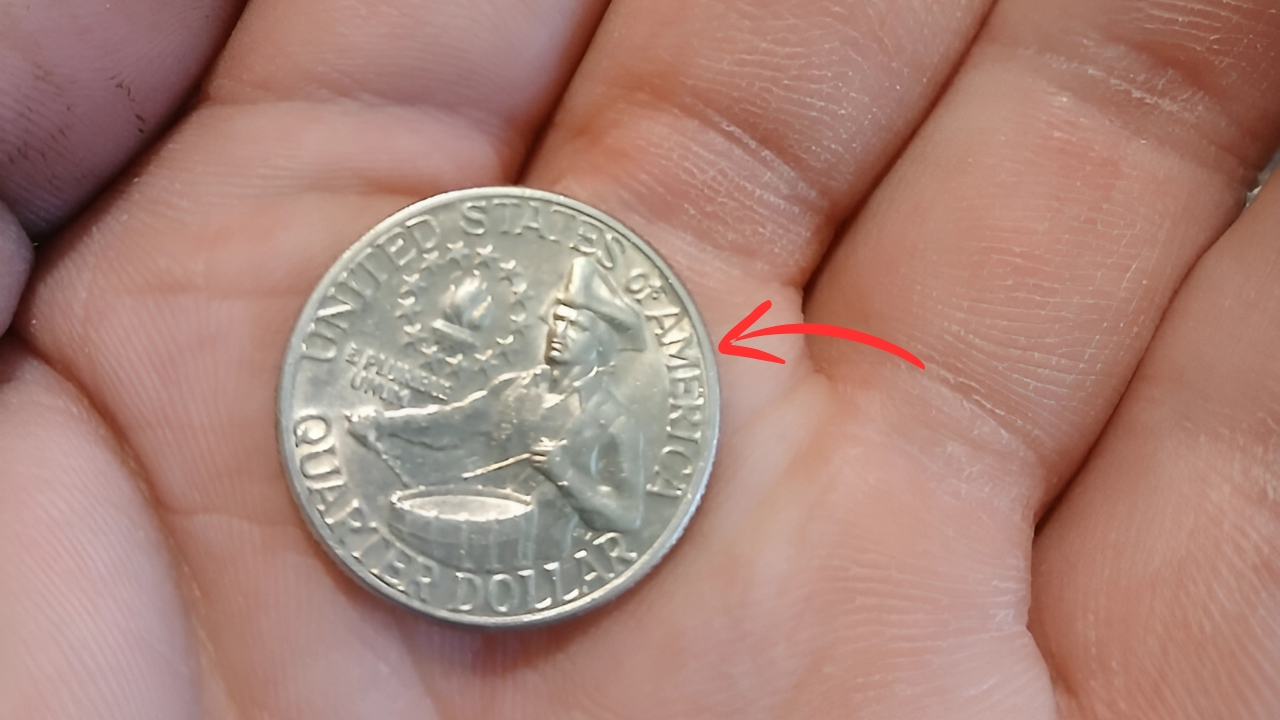The Bicentennial Quarter, minted between 1975 and 1976, represents a unique moment in American numismatic history. Commemorating 200 years of American independence, these quarters tell a story far beyond their 25-cent face value.
This comprehensive guide explores five of the most valuable and intriguing Bicentennial Quarters that could potentially transform your loose change into a significant investment.
The Bicentennial Quarter: A Numismatic Celebration of American Independence
In 1975 and 1976, the United States Mint released special quarters to celebrate the 200th anniversary of American independence. Unlike typical circulating coins, these quarters featured a distinctive reverse design by Jack L. Ahr, depicting a colonial drummer with a victory torch encircled by 13 stars—representing the original 13 colonies.
1. The Rare Double Die Obverse Bicentennial Quarter
The Minting Error That Became a Collector’s Dream
Some Bicentennial Quarters were produced with a rare and valuable minting error known as the Double Die Obverse (DDO). This error occurs when the coin’s design is struck twice, slightly offset, creating a subtle but distinctive doubling effect on the coin’s surface.
Identification and Value
- Professionally graded specimens can be worth $500 to $5,000
- Look for subtle doubling on the date and inscriptions
- Most valuable when in uncirculated, pristine condition
Expert Tip
Use a high-powered magnifying glass to detect the subtle doubling that makes these quarters so special. Professional numismatists can help authenticate potential finds.
2. Silver Proof Bicentennial Quarters: The Premium Collector’s Piece
Composition and Rarity
Unlike standard circulating quarters, the Silver Proof Bicentennial Quarters were minted with 40% silver, making them inherently more valuable than their copper-nickel counterparts.
Valuation Insights
- Pristine proof sets can be worth $25 to $500
- Silver content adds inherent value
- Condition is paramount for determining worth
Preservation Secrets
- Store in professional-grade protective cases
- Avoid touching the coin’s surface
- Keep away from moisture and extreme temperatures
3. Rare Mint Mark Variations
The San Francisco Mint Treasure
Bicentennial Quarters from the San Francisco Mint (marked with an ‘S’) are particularly sought after by collectors. Some variations are exceptionally rare and valuable.
Collector’s Highlights
- Proof sets from San Francisco can be worth $50 to $300
- Look for sharp, clean strike details
- Mint condition is crucial for maximum value
4. The Uncirculated Collector’s Edition
Mint Sets and Their Hidden Value
Unopened mint sets from 1975-1976 can contain quarters with exceptional value, particularly those in absolutely pristine condition.
Valuation Range
- Complete uncirculated sets: $50 to $500
- Individual quarters in top condition: $10 to $100
- Rarity increases with perfect preservation
Preservation Techniques
- Keep in original mint packaging
- Avoid exposure to light and humidity
- Handle with cotton gloves if necessary
5. Unique Die Variations and Striking Anomalies
The Collector’s Holy Grail
Some Bicentennial Quarters feature unique die variations or striking anomalies that can dramatically increase their value.
Identifying Rare Variations
- Look for subtle differences in design elements
- Professional grading is essential
- Some variations can be worth thousands of dollars
Understanding Bicentennial Quarter Grading
The Numismatic Grading Scale
Coin value is predominantly determined by its condition, following a strict grading scale:
- Poor (P-1): Heavily worn, barely identifiable
- About Good (AG-3): Major details visible but worn
- Good (G-4 to G-6): Main design elements clear
- Very Good (VG-8 to VG-10): More details emerge
- Fine (F-12 to F-15): Moderate wear, most details clear
- Very Fine (VF-20 to VF-35): Light wear, sharp details
- Extremely Fine (EF-40 to EF-45): Minimal wear
- About Uncirculated (AU-50 to AU-58): Slight trace of wear
- Mint State (MS-60 to MS-70): Perfect, no wear
Investment Considerations
Factors Affecting Bicentennial Quarter Value
- Mint condition
- Rare minting errors
- Silver content
- Historical significance
- Collector demand
Professional Authentication
Always consider professional grading from:
- Professional Coin Grading Service (PCGS)
- Numismatic Guaranty Corporation (NGC)
Collecting Tips for Bicentennial Quarters
Where to Look
- Roll through bank coins
- Check family collections
- Attend coin shows
- Join numismatic communities
Red Flags and Cautions
- Beware of counterfeit coins
- Always verify authenticity
- Research before making significant purchases
The Historical Context
Beyond Monetary Value
Bicentennial Quarters are more than just potential investments. They represent a crucial moment in American history, commemorating 200 years of independence and national pride.
Preservation and Care
Best Practices for Coin Collectors
- Use acid-free holders
- Avoid direct handling
- Store in controlled environment
- Consider professional conservation
5 Rare Bicentennial Quarter Value
The world of Bicentennial Quarter collecting is about more than just monetary value. It’s a journey through history, a celebration of American independence, and a fascinating hobby that connects collectors to a unique moment in time.
Final Collector’s Advice
- Start small
- Learn continuously
- Enjoy the process
- Respect the historical significance
Every quarter tells a story. Some are worth far more than 25 cents—they’re windows into American history, waiting to be discovered by those with a keen eye and passionate heart.
Remember: The most valuable coin might be hiding in your pocket change, waiting to be recognized and appreciated.
